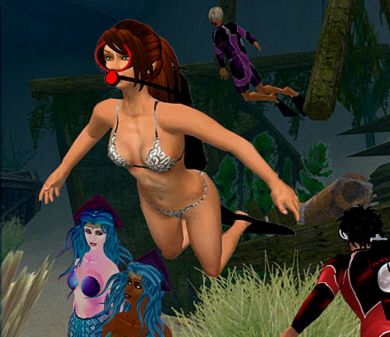Gaming takes on a Second Life
By Gillian ArmstrongThe rise of games such as Sims allowed computer gamers a new form of interaction – the virtual world where players live somewhat vicariously through the characters they manipulate. The next step in the virtual development? The Avatar, of course.

The term avatar in a virtual was first popularized in a 1992 novel by Neal Stephenson, Snow Crash. The literal translation of this Sanskrit word is “descent” and originates in Hindu theology to describe the bodily form of a god, but the word now commonly refers to any online character which relates to a human individual.
The virtual world of Second Life allows the player to create his/her own personal avatar to very specific characteristics. Players can choose everything from hair colour to occupation and can quite literally re-invent themselves. Other players then connect online and the avatars interact with each other within the virtual world, whether it be to date, to conduct business or even to enter the Swedish consulate. However, Second Life is not the only virtual world and others have sprung up all over the place. An example is The Church of Fools which allows users to log into the virtual world of worship, whisper to other parishioners (except during services) and pray. Users will be disppointed to hear that Church Wardens now have the power to “smite the wicked” and log them out of the virtual church.
It seems the avatar model is extending itself into gaming as well. Sim’s creator Will Wright and Microsoft’s XBox team head, J. Allard, are of the opinion that computer games of the future will incorporate far more input from the gamer himself. Spore, the newest Multiplatform “God game” to be released by Wright, allows the player to be any part of the gaming experience and does not limit him only to the role of the protagonist. Players develop their species from the cellular to the space phase and have control over the design of the planets they inhabit and the direction in which the game flows. The creations can then be uploaded to company, and are available for download by other players. According to Allard, the gaming industry is looking at developing a “Wikipedia model” or, in other words, an open-source model in the field of game development. This open-ended gameplay policy will dramatically affect the nature of gaming and transfer a greater balance of power to the side of the individual.
bigeyeddeer@yahoo.co.uk



No comments:
Post a Comment